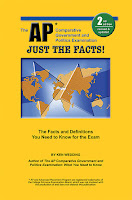Coming of age in China
The dilemmas facing rural migrants in urban China
In China’s cities, young people with rural ties are angry
Teaching Comparative blog entries are indexed. Use the search box to look for country names or concept labels attached to each entry.
In China’s cities, young people with rural ties are angry
Over the past 40 years, hundreds of millions have [moved from village to city], providing the blood, sweat and tears of China’s economic miracle. The Communist Party has often congratulated itself that such a vast movement of people has happened without mass unrest. But those… who have left rural areas more recently challenge the party’s sense of security. They face a wider range of problems than earlier participants in the rural exodus. They are dissatisfied with their lot and have little to lose. They may prove less quiescent than their predecessors.
When observers of China think of threats to the party, they often focus on the rapid growth of the country’s new middle class… But many Chinese analysts… fret about turmoil created by members of a social underclass: poor workers in the cities whose family ties are rural…
A study published in 2009 in the Beijing-based Economic Research Journal said the younger migrants wanted “personal development”, unlike their parents who were focused on more basic needs. The new generation, it concluded rather snobbishly, “is no longer willing to stay in the dirtiest jobs, is not frugal enough to save money to send home and not able to earn enough to build a married life.” Its members are less stoical and unwilling to suffer in silence.
Young migrants share four characteristics that worry the party… they are not well educated. The men face more of a “marriage squeeze”… ie, a shortage of women of marriageable age from similar backgrounds. They similarly earn low wages and face official discrimination as a result of the hukou system that shuts many of them out of subsidised urban services such as education and health care. But they are more dissatisfied and pessimistic than their parents were. Their hopes of carving out a future in big cities are being wrecked by high living costs, demographic change and the hostility of local governments…
The younger generation are products of China’s one-child policy… The ratio of boys to girls at birth soared in the 1980s, peaking in 2005, when there were 122 baby boys for every 100 baby girls, one of the most distorted ratios ever seen…
The new generation is entering a difficult period. Its men will remain unmarried and its children will often be educated away from home. Many will be on low, insecure wages… [T]he party’s reaction to any discontent is likely to be greater repression. That would make solving migrants’ deep-seated problems harder, and an explosion of rage more likely.
Teaching Comparative blog entries are indexed. Use the search box to look for country names or concept labels attached to each entry.



Comments
Post a Comment